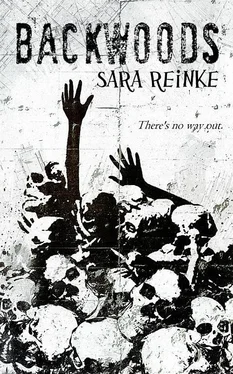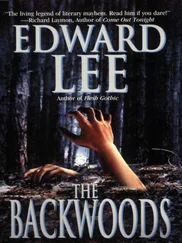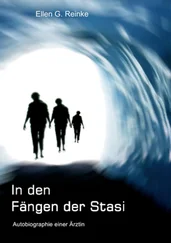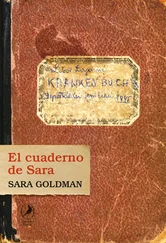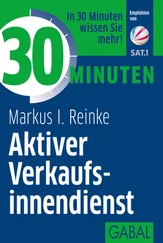“You mean a germ did that?” Andrew asked, pointing with the barrel of the nine-millimeter at the dead screamer.
Moore awarded him a glance that suggested he felt like he was trying to teach one of his chimps or Siamangs to play Candyland. “A highly specialized, man-made germ,” he replied. “One that affects only a specifically targeted segment of susceptible hosts.”
Between you and me, this is the strangest assignment I’ve ever had.
Dani had told Andrew this and her words came to his mind now.
We’re all a hodge-podge of different units, different companies, different regiments. I didn’t know any of these guys up until two months ago when we all got here.
“The soldiers,” he said. “That’s why they all came from different units, why there are so few of them. You’re saying they were hand-picked to be here.”
“From their medical records, yes.” Moore nodded. “They were each identified as a potential host.”
A host. The term was cold, brittle, callous. Expendable, Andrew thought. It sounds like something expendable.
“Why them?” Unspoken but even more desperate, from inside his mind: Why Dani?
“Because,” Moore said. “According to their medical records, none of them have ever been exposed to human-specific varicella zoster virus. Chickenpox.”
Andrew blinked, surprised and bewildered. “You’re kidding, right? You made some kind of mutant form of chickenpox?” This sounded as asinine and preposterous as Suzette’s assertion O’Malley had been stricken by some kind of side effect from strep throat.
“No,” Moore said. “But what I made shares similar enough properties that if introduced into a subject who has been exposed to varicella or its vaccine, they won’t be infected. Which, for the record, does not include you.”
Startled, Andrew blinked. “What? How do you know if I’ve had chickenpox or not?”
Moore smirked. “Because Prendick let you live. You can’t be naïve enough to believe that he’d have let you survive even a night at this compound if there wasn’t some reason for it, something in it for him. There’s a fairly simple blood test that shows whether or not your body has the varicella antigens, a type of immunological memory cell, you could say, that helps prevent future infections. And if you’d tested positive for those antigens, Prendick would have shot you himself.”
Suzette had drawn a blood sample from him on his first night at the facility. He hadn’t understood why at the time but it hadn’t even occurred to him to ask.
Then he remembered something, a flash of childhood memory, his mother taking him to a neighbor’s house for a party.
“Whose birthday is it?” he’d asked his sister.
“No one’s,” Beth had answered. “It’s a chickenpox party. Billy Cramer’s got it and they think you’ll catch it, too. Then you won’t have to worry about it later.”
But although Andrew had spent the afternoon playing with Billy and the rest of his friends, he hadn’t caught chickenpox. In fact, he’d made it through at least two such parties in his youth unscathed and had never been infected.
Which means I could still get it. Horrified, he looked down at his shirt, splattered with virus-laden gore. Chickenpox spreads through contact.
“Don’t worry.” Moore made a chuffing sound, dismissive and derisive. As if reading Andrew’s mind, or at least, the stricken expression on his face, he said, “I specifically engineered the strain to control its communicability. You can only be infected when it’s directly injected into the cerebrospinal fluid or cranial sinuses.”
“You were going to do that to me?” Andrew asked. “Make me one of those things, too?”
“Do you have any idea how rare it is for an adult in this day and age to have had no exposure to either the varicella virus or its vaccine?” Moore asked, again with a smug sort of glance that suggested he thought Andrew wouldn’t have much of an idea about anything. “You, Mister Braddock, are among a very select tier of the American population, one of only five percent in the entire country.”
And of all the backwoods in all the world where I could’ve run my damn Jeep off the road, I wind up in this one, Andrew thought. Lucky me.
“If I’m so rare, why would the government want a weapons-grade chickenpox virus?” he asked. “You said if someone’s had it or been vaccinated, they can’t catch your bug.”
“Because it’s the host that’s the weapon, not the virus itself.”
Alice uttered a small, birdlike cry. They’d been walking past a room in which the door had been left standing ajar, and as Andrew followed her horrified gaze, he recognized the rows of animal cages lining the walls. Now those cages lay tossed and scattered, the pale tile floor splattered and stained with something dark.
“Alice,” Moore exclaimed as the girl darted away from them and into the room.
“Alice!” Andrew shoved past Moore and hurried after her, skittering to a halt just past the doorway. It looked like an F-5 tornado had ripped through the chamber. The door hadn’t been pushed open as much as plowed through, and listed now on its hinges, the metal crumpled inward with deep pock marks and craters. Animal crates had been tossed about with haphazard brutality, the sides dented and battered, the metal grates twisted and torn loose of their moorings. The monkeys and Siamangs that had been kept inside were all dead, some little more than bloody entrails or limbs left scattered across the floor.
Alice, meanwhile, had raced across the room. When she poked her head into the playroom, she shrank back from the doorway with another wounded cry, then rushed inside.
Lucy, Andrew realized.
Alice had found the Siamang lying half-way beneath the table at which the three of them had played Candyland. Alice had fallen onto her knees, folding herself over the lifeless primate.
There were no emergency lights in the playroom, the only illumination coming from the dim recessed bulbs in the storage area beyond, and it wasn’t until Andrew drew near that he saw what was left of Lucy. Mangled almost beyond recognition, her arms and legs had been torn loose from their sockets, her gut torn open, her face battered and bloodied.
“Jesus,” he whispered. He went to Alice, kneeling beside her.
“They killed her,” she said, stunned. “Lucy…she’s dead.”
Something had attracted the screamers to that store room. They had either heard the monkeys or smelled them inside. Something, Andrew thought. They knew they were here and they bashed their way through the locked door to get them.
Oh, God, what if they’ve done the same thing to Dani?
* * *
“Why does the government want things like the screamers?” Andrew asked Moore. He’d thought that Alice would weep with the discovery of Lucy’s remains, but instead, the girl had simply sat on the floor beside the dead Siamang, her eyes distant and vacant as her mind had slipped into whatever fugue-like cocoon her autism sometimes allowed her. “You said your virus made the hosts the weapons. What did you mean?”
“It’s altered their DNA,” Moore replied. Unlike Alice, he seemed unmoved by the carnage as he surveyed the playroom. Moving idly, he’d started picking up fallen books and game boards, placing them back on bookshelves or countertops. “You’ve seen it for yourself. They’re faster now, stronger, more resilient. The virus allows them to produce growth hormones that facilitate healing more quickly, making them relatively impervious. The limbic system in their brains have been enhanced, so their natural aggression levels have been heightened, intensified. They’re tough as nails and meaner than hell. They are, in essence, super-soldiers.”
Читать дальше
